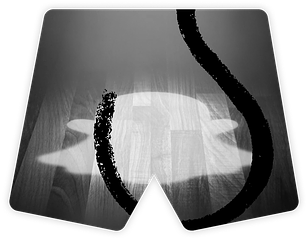Hey! Welcome to Three Shorts, a recurring series where I unpack the strategy behind the news in as few bullet points as possible.
Because you’re on the free list, you only get 1.5 shorts. If you’d like access to everything (all the shorts, and the entire Everything bundle), subscribe!
Enjoy!
Snap’s take on TikTok — incremental 🤷♂️
What happened?
This Monday Snap announced Spotlight, a new TikTok-esque tab in their home screen.
When you tap the Spotlight tab, you see a feed of vertical scrolling Snaps submitted by users and approved by Snapchat.
The format is no different from regular Snaps, and creators are explicitly not allowed to upload videos from other apps (like TikTok).
Snap will pay users who submit to Spotlight $1m each day through the end of 2020. They haven’t disclosed how they’ll decide who gets what.
Interestingly, many of the snaps in Spotlight are anonymous.
Why? What’s the strategy?
Like every other social media company, Snapchat has learned from the rise of TikTok, and decided the threat is grave enough to take action.
Spotlight’s biggest challenge is to create a feed that’s entertaining enough to compete with TikTok.
Instead of trying to out-TikTok TikTok, like Reels is doing, Spotlight’s main objective is to cultivate a distinct vibe. If Spotlight can offer a flavor no one else has, people will use it.
This is why it’s so critical that Spotlight doesn’t allow users to upload videos from other apps. By enforcing native content, it’s much more likely that a unique culture and meme-set will emerge.
The trade-off is that other apps have lots of great content, and they’re missing out on it.
Perhaps this is why Spotlight is paying $1m to creators every day. They need an extra incentive to offset the higher cost of posting on their platform, since users can’t just upload something that already exists.
Will it work?
In the short run this will make Spotlight worse, but if it works, it’s a much more powerful strategic position to be in.
Spotlight’s strategy mirrors the classic principle that you should compete to be unique, rather than competing to be the best.
That being said, it often makes sense to adopt a less powerful position in order to have any position at all. When I first used Spotlight, it was frankly terrible compared to TikTok, and not even as good as Reels.
Sometimes it’s better to get the flywheel going with easy supply, then as you scale turn your focus towards increasing quality.
Famously, when YouTube and Vimeo were both getting started, Vimeo fell behind because of their stricter standards for what kind of content they wanted uploaded to their site. YouTube let users upload anything, and that was a huge advantage.
Bottom line: If I had to guess, I’d say Spotlight will have about as much impact on Snap as Snap Maps did. (In other words: not much.)
Apple’s fee reduction — genteel 🎩
What happened?
Last week Apple announced a lower App Store fee for developers making less than $1 million per year.
This new fee structure will bring Apple’s current 30% fee down to 15%, starting in January 2021.
Developers will have to opt-in and be approved to take advantage of the offer.
Why? What’s the strategy?
Analysts predict this fee reduction will cost Apple ~$600m in 2021, or about ~3% of App Store sales.
<Redacted>
<Redacted>
(You get the idea.)
The rest of this short explores Apple’s possible motivations for reducing their fee, and makes a prediction about what they could do that would be a more effective way to achieve their goal. It also points towards a specific thing to watch out for at WWDC next year.
The final short is about the recent exodus of talent from Vox Media. What is happening there? Why? What will happen next?
Curious?
This is the fourth week in a row that I’ve published Three Short on time, and my commitment is to keep publishing it every week.
I’ll cover the strategy behind the news in the concise bullet-point format — what happened? why? what’s the strategy? will it work? — so you can start to train your neural net on the most important strategy frameworks, while keeping up with latest happenings.
Just like a ML algorithm can learn object detection or face detection, you will learn strategy detection.
What you get when you subscribe:
Full access to the Divinations archives, including my best essays (Finding Power, Disrupting Disruption, Your Actual Competition, Strategy Smells, etc)
The Everything bundle now has 10 paid newsletters including Divinations. Here are a few articles from around the bundle that you should pay attention to:
A Sneak Peak at Clay.earth — a next generation personal CRM, by Dan Shipper in Superorganizers
Can Political Betting Markets Predict Election Outcomes?, by Conor Durkin in Napkin Math
Glenn Greenwald Goes Independent Following Biden Story Dispute, by Li Jin in Means of Creation
If for any reason you can’t afford a subscription, let me know! We’re happy to work something out.



